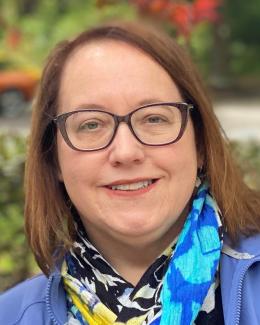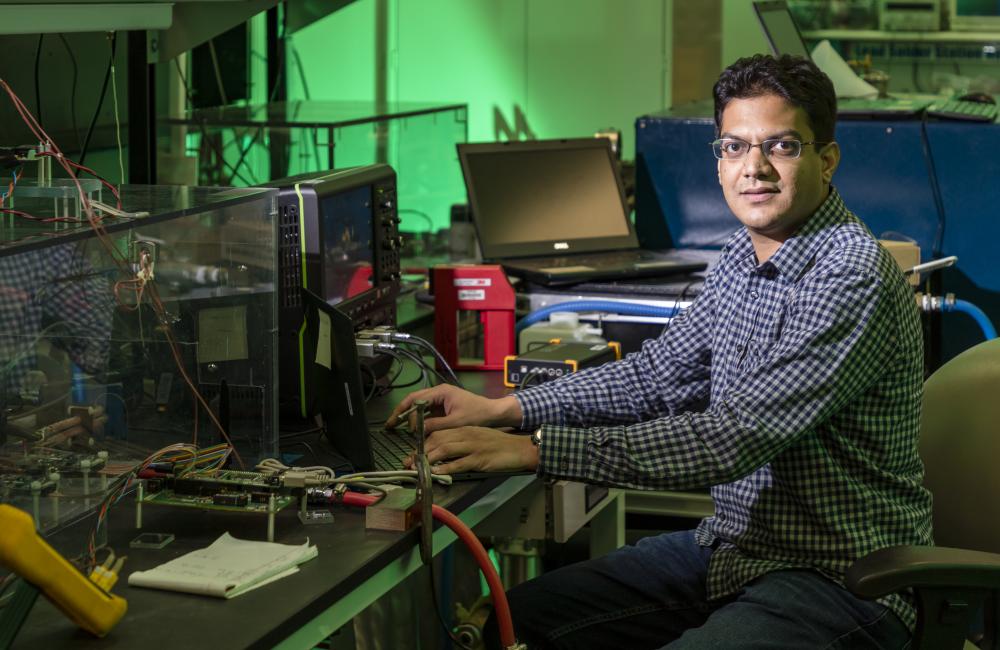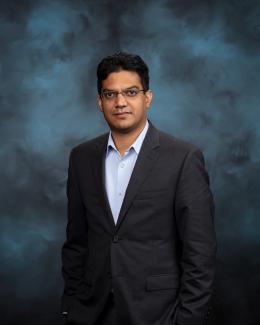Veda Galigekere is leading Oak Ridge National Laboratory’s work on fast, efficient, wireless charging of electric vehicles. Photos by Carlos Jones, ORNL.
Working in the automotive industry was a good introduction to modern mobility research for Veda Galigekere, but it was in a national lab where the researcher was able to translate his interest in physics, electrical engineering and power electronics into research that could fundamentally improve the nation’s transportation system.
Galigekere is principal investigator for the breakthrough work in fast, wireless charging of electric vehicles being performed at the National Transportation Research Center at Oak Ridge National Laboratory. NTRC is the only US Department of Energy Office of Energy Efficiency and Renewable Energy User Facility dedicated to transportation science. He and his colleagues in the Power Electronics and Electric Machinery (PEEM) Group at ORNL took a big step forward last fall as they demonstrated a 120-kilowatt wireless charging system for vehicles.
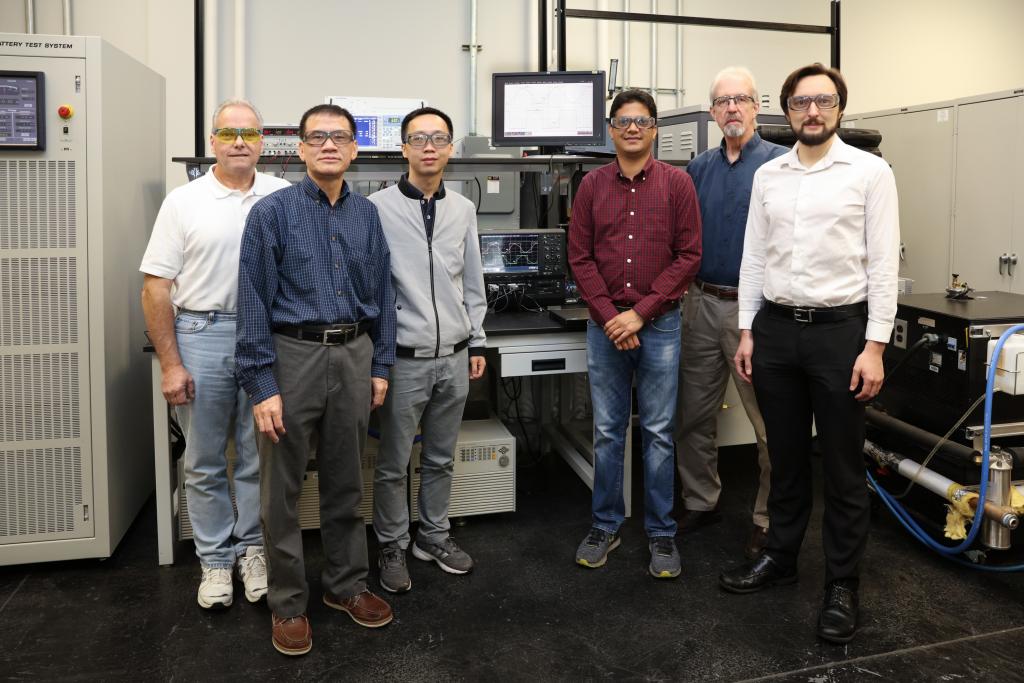
The team designed a wireless charging coil and state-of-the art, silicon carbide power electronics to create the magnetic field needed to efficiently and safely transfer power across an air gap. They’re now working on methods to further increase the power transfer level and to dynamically charge vehicles while In motion.
It was a chance meeting that brought Galigekere to ORNL about two-and-a-half years ago. He was working at the time on hybrid and electrical power management systems for automotive supplier Lear Corporation. While waiting to pick up his wife at nearby University of Michigan, a friend introduced Galigekere to ORNL’s Madhu Chinthavali, who was in the area for a conference. “We all had dinner together and I enjoyed hearing about the basic science challenges ORNL was taking on,” Galigekere noted.
“I liked working for industry, but I like it here even more. We get to work on challenging issues with positive, real-world impact. Sustainable transportation is a very important issue. About one-third of the energy used in the U.S. goes to transportation. We work on a diversity of technical topics, from electrical grid work to new devices and electric motors, and I’m learning all the time. You can dare to think big and then you get to do it,” he added.
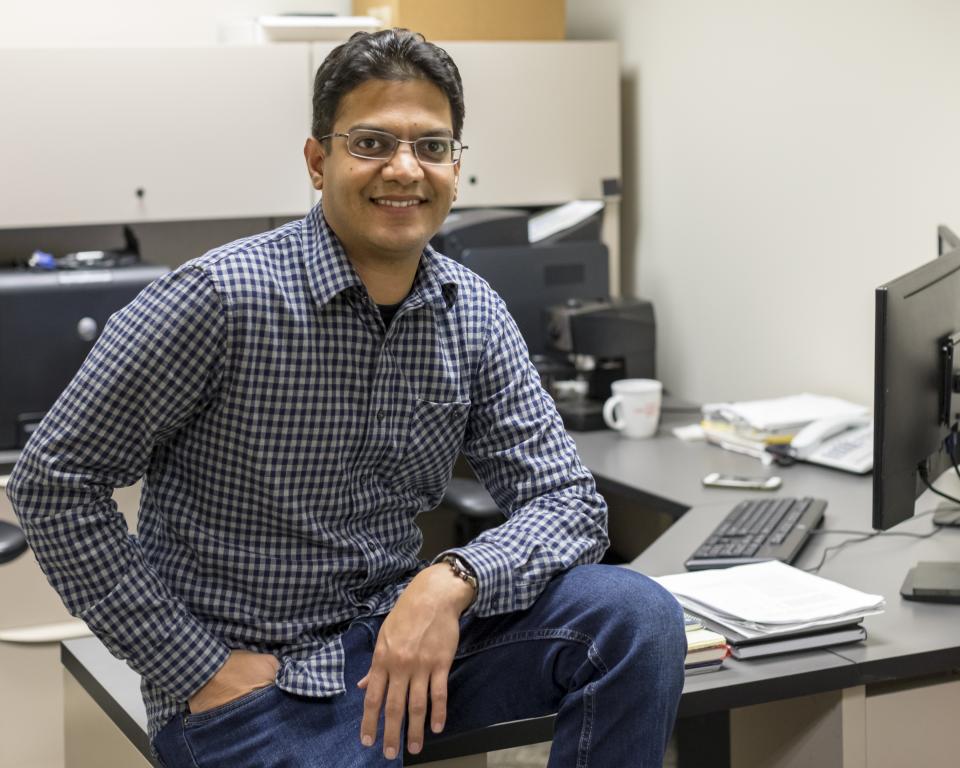
Growing up, science and engineering “were almost like a natural progression for me,” Galigekere said. His father is a professor of electric engineering, his mother holds a bachelors in pure science and his brother holds a PhD as well. “Science was always being talked about in my family. I grew up reading Isaac Asimov and Stephen Hawking and was fascinated with astrophysics, he added.
Galigekere earned his bachelor’s degree in India before moving to the U.S. to earn both a master’s and doctoral degrees in electrical engineering from Wright State University in Ohio. Along the way, he worked as an intern for GE Global Research.
Moving to Tennessee was a good decision for Galigekere and his wife, who both love eco-tourism, wildlife conservation, and enjoy exploring the Smokies.
His advice for young scientists? “I think if you’re passionate and curious, the good projects will find you. There are a lot of challenges in research that need to be solved. Don’t get bogged down in one application and project. Learn your core strengths and skills and keep your mind open to new areas,” Galigekere said.
ORNL is managed by UT-Battelle for DOE’s Office of Science, the single largest supporter of basic research in the physical sciences in the United States. DOE’s Office of Science is working to address some of the most pressing challenges of our time. For more information, please visit https://energy.gov/science.
